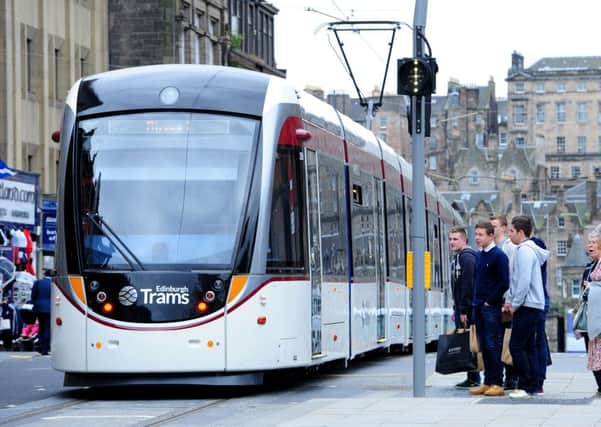Lindy Patterson: Dispute board could keep trams on track


Although the traumas remain ingrained on the memories of civic officials (as well as the city’s residents), Edinburgh Council believes that proceeding with phase two of the project can boost the city’s economy and act as a catalyst in transforming its waterfront area.
While the ultimate decision has now been deferred until after the 2017 Scottish local council elections, there will be major concerns about Edinburgh enduring another financial fiasco should the extension project go ahead. To alleviate the risk of history repeating itself, the city should consider how it wants to deal with any disputes which do arise.
Advertisement
Hide AdAdvertisement
Hide AdDispute boards offer a sensible option as they are structured to mitigate risk, by identifying potential problems early on and developing solutions which will avoid disagreements from arising or escalating. Should an issue arise in the midst of construction, the boards are there to resolve it while work progresses.
Dispute board members are usually appointed at the beginning of a project and stay in place throughout. Along with a legal representative, they are typically comprised of engineers and people with other expertise who can take a professional view in resolving a disagreement. They tend to meet three to four times per year while a project is underway, but can also be brought in as and when disputes arise to fast-track recommendations.
Dispute boards were first introduced in the United States and used on the boundary dam project in Washington in the 1960s. Since 1995 the World Bank has made their use mandatory on all projects with a budget of more than $50 million (about £35m). Although their use is now on the rise, they have been slow to catch on, partly because projects need to be of sufficient scale to justify the cost of putting them in place.
They’ve been used in the UK for projects including the Channel Tunnel, Docklands Light Railway and 2012 London Olympics. Here in Scotland, there is currently one in place for the new Forth Road Crossing, while Transport for London has also set up its own style of dispute board, known as its Conflict Avoidance Panel, which could be rolled out for all major infrastructure projects in future.
Advertisement
Hide AdAdvertisement
Hide AdIf the Edinburgh tram extension goes ahead, a dispute board could be beneficial. This will help raise confidence in a project which could help put the city on the international stage for all the right reasons.
• Lindy Patterson QC is a partner at international law firm CMS